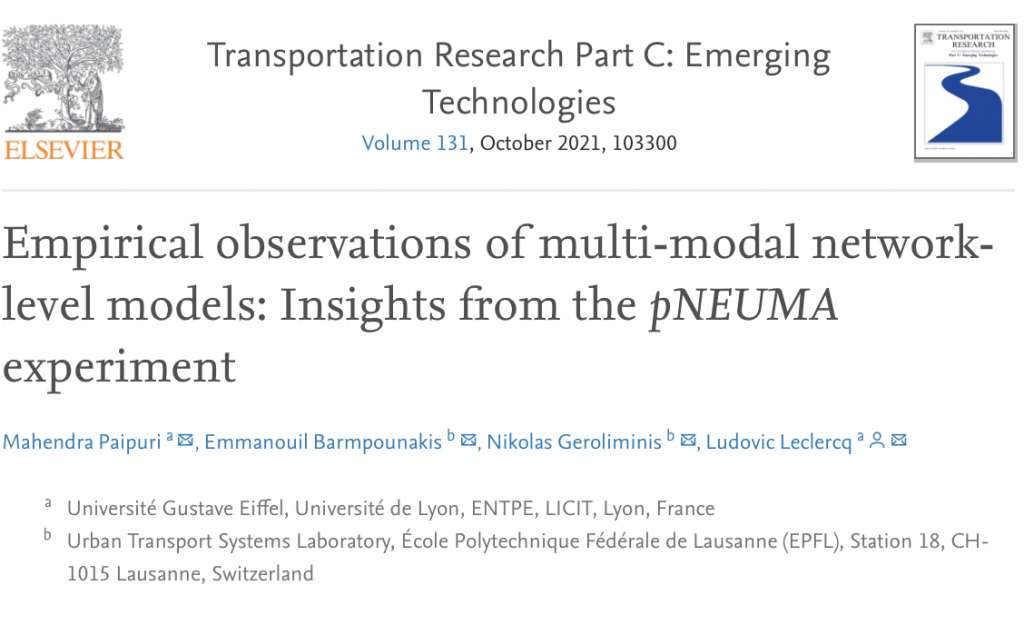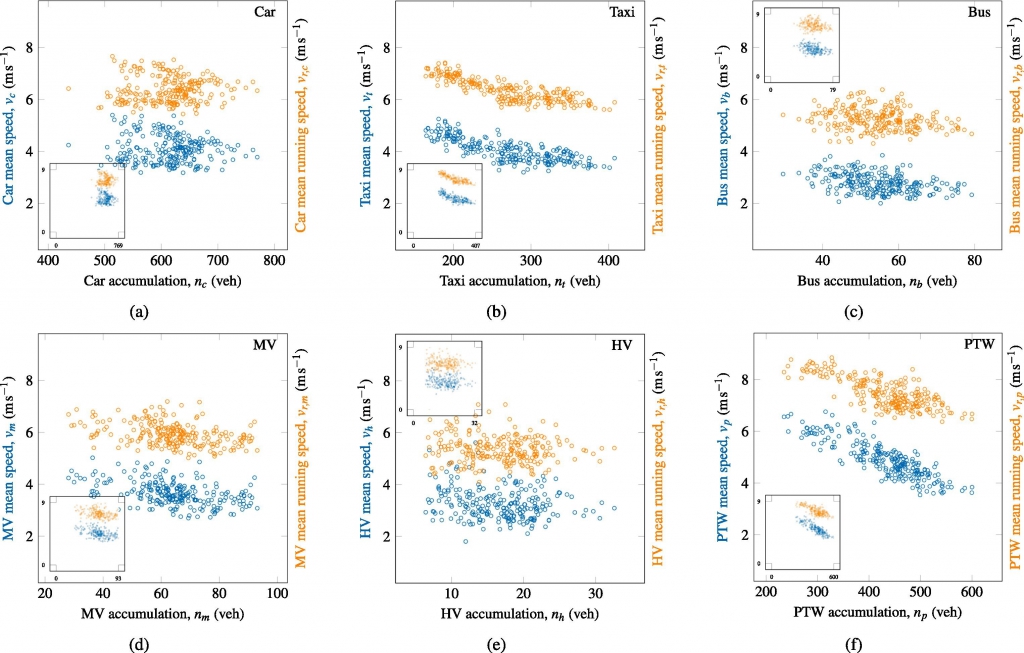
After an amazing collaboration with the group of Dr. Ludovic Leclercq at Univ. Gustave Eiffel, a new paper was published in Transportation Research Part C: Emerging Technologies entitled “Empirical observations of multi-modal network-level models: Insights from the pNEUMA experiment”.
Highlights
- Multimodal regressions are defined for mean speed with respect to accumulations or stop durations (two-fluid models).
- A Macroscopic traffic states analysis comes from an unprecedented complete trips database from pNEUMA Experiment in Athens.
- A two-stage trip-based macroscopic model is proposed to enhance traffic modelling at urban regional scale.
Abstract
Multi-modal interactions at the network-level remain unexplored due to the lack of high-resolution data for all transportation modes involved. The current work investigates the effect of multi-modal interactions at space-mean network speed for each mode using the dataset from pNEUMA experiment that was carried out in a congested city centre network of Athens, Greece. Explanatory variables considered are the accumulation and the stopped fraction of vehicles of each mode. Firstly, a multi-modal mean speed MFD is considered by assuming that the mean speed of each mode can be expressed in terms of accumulations of all modes. The quality of multi-modal MFD fits is compared to the uni-modal ones, where the mean speed of a given mode is assumed to be a function of the accumulation of that mode only. Secondly, the classical two-fluid model is extended to multi-modal networks. An analysis on the ergodicity assumption in the context of stopped fraction is also presented. This work also introduces a network-level dynamic model that uses the stopped fraction of vehicles. This so-called extended trip-based model simulates the stop-and-go pattern of the vehicles thereby reproducing the evolution of network congestion. This work is the first to explore in this direction. The results from the classical trip-based and the extended trip-based models are compared and validated with the empirical data.
You can read the paper here.
